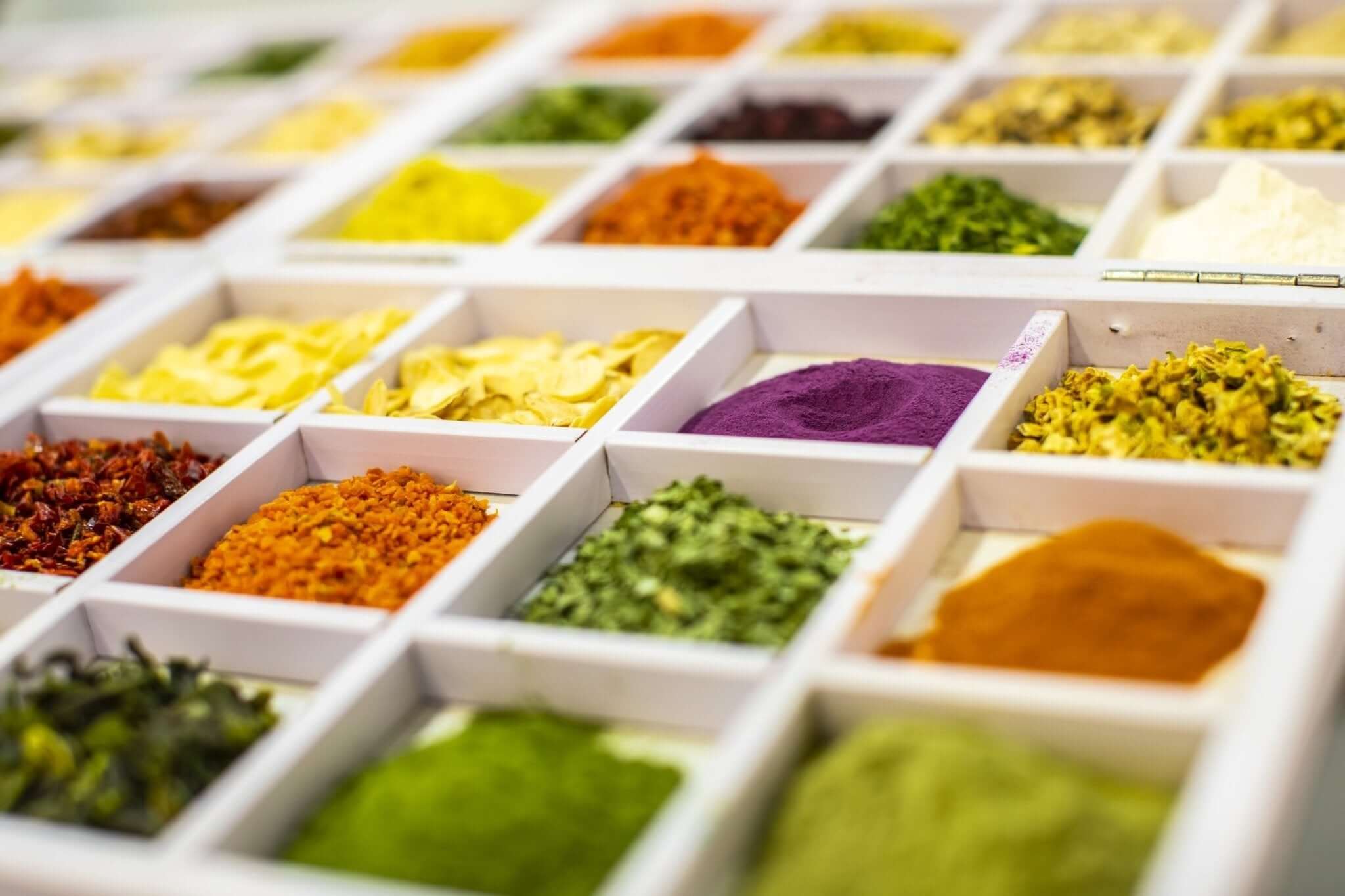Everything about the Function of an Emulsifier in Food and Its Value in Modern Food
Emulsifiers are crucial in modern-day cuisine, helping with the blend of immiscible fluids like oil and water. Their capability to support mixtures improves the structure and flavor of various foodstuff. From salad dressings to baked items, emulsifiers play a considerable duty in both business and home food preparation. Yet, the science behind their function and the future innovations in their usage stay much less checked out. Emulsifier In Food. What extra could be discovered about these vital culinary representatives?
Comprehending Emulsification: The Scientific Research Behind the Refine
Although emulsification might feel like a straightforward cooking technique, it involves intricate scientific concepts that are vital for producing steady mixes of immiscible liquids, such as oil and water. At the heart of this process exists the concept of surface area stress, which avoids both liquids from blending normally. Emulsifiers, materials that minimize surface area stress, play an essential function in facilitating the mix of these liquids. They possess both hydrophilic (water-attracting) and hydrophobic (water-repelling) residential properties, permitting them to secure themselves at the user interface in between oil and water.
When an emulsifier is introduced and the blend is flustered, it forms a protective barrier around dispersed droplets of one fluid within the various other, maintaining the blend. This activity not only improves appearance and mouthfeel in food yet likewise adds to their visual appeal. Emulsifier In Food. Recognizing the scientific research behind emulsification is basic in contemporary food, enabling chefs to develop a variety of sauces, dressings, and emulsified meals
Usual Sorts Of Emulsifiers Used in Food
Emulsifiers are necessary components in the food sector, playing a vital duty in stabilizing mixes of oil and water. Various sorts of emulsifiers are typically used, each with unique buildings fit for different applications. Lecithin, originated from soybeans or egg yolks, is among the most popular all-natural emulsifiers, frequently discovered in dressings and delicious chocolates. Mono- and diglycerides, which are originated from glycerol and fats, are commonly made use of in baked goods and margarine to boost appearance and prolong life span. One more typical emulsifier is polysorbate 80, preferred for its capability to improve the consistency of ice creams and sauces. Furthermore, xanthan periodontal and guar gum function as thickening representatives that additionally contribute to emulsification in gluten-free products. These emulsifiers are indispensable to creating a secure, palatable product in modern food formulations, making certain a pleasant sensory experience for consumers.
The Role of Emulsifiers in Various Food Products
A range of foodstuff depend on emulsifiers to accomplish wanted appearances and security. These compounds help with the blending of immiscible fluids, such as oil and water, which is essential in many processed foods. For example, in salad dressings, emulsifiers help keep a consistent blend, avoiding splitting up and boosting service life. In baked goods, they add to an uniform crumb structure and wetness retention, improving overall quality.
Emulsifiers additionally play a substantial role in dairy products, such as gelato and yogurt, where they stabilize fat blobs, making sure a smooth mouthfeel. In addition, in condiments and sauces, they improve thickness and boost spreadability. This performance is vital in the manufacturing of chocolates, margarine, and mayo, where a natural item is needed. Generally, the use of emulsifiers in numerous food items is indispensable to contemporary food manufacturing, enhancing stability and consistency across a variety of things.
Just How Emulsifiers Enhance Structure and Taste

When incorporated into food, emulsifiers significantly enhance both texture and taste, developing a more enjoyable eating experience. These compounds help with the blending of components that typically do not blend well, such as oil and water, resulting in a smoother, creamier uniformity. This not only improves mouthfeel yet additionally allows tastes to distribute evenly throughout the product, magnifying the total preference.

Emulsifiers in Home Cooking: Tips and Techniques
Exactly how can home cooks successfully use emulsifiers to enhance their dishes? Emulsifiers play an essential duty in accomplishing desirable appearances and flavors in homemade dishes. For example, using egg yolks in mayo or hollandaise sauce enables a stable emulsion, integrating oil and water efficiently. Home chefs can likewise try out mustard, which acts as an emulsifier in vinaigrettes, making certain a smooth uniformity.
In baking, integrating lecithin, located in go egg yolks or soy, can improve dough security and moisture retention. Furthermore, using business emulsifiers like xanthan periodontal or guar gum can help enlarge sauces and dressings while preserving a velvety mouthfeel.
When producing ice lotions or whipped toppings, emulsifiers can prevent ice crystal development, resulting in a smoother structure. By understanding these strategies, home chefs can significantly elevate their culinary productions, supplying constant and enjoyable recipes that display the power of emulsification.
The Future of Emulsifiers in Culinary Innovation
As the investigate this site culinary globe continues to develop, the function of emulsifiers is poised to come to be varied and progressively cutting-edge. Advancements in food science are causing the development of new emulsifying agents stemmed from all-natural resources, which cater to health-conscious consumers and enhance the sensory qualities of meals. Innovations such as plant-based emulsifiers are acquiring grip, allowing cooks to create vegan and allergen-free alternatives without compromising structure or flavor.
In addition, using emulsifiers in molecular gastronomy is increasing, making it possible for chefs to try out unique structures and discussions that mesmerize restaurants. As sustainability becomes a top priority, the future might see a change in the direction of green emulsifiers that reduce environmental influence.
Ultimately, emulsifiers will remain to play an important function in cooking advancement, connecting the space between practice and modernity, and permitting chefs to press the boundaries of creativity in their kitchens.
Often Asked Concerns

Are Emulsifiers Safe for People With Allergies?
Emulsifiers can be safe for individuals with allergies, relying on their certain sensitivities. Particular emulsifiers, derived from allergenic resources like soy or eggs, might cause reactions, demanding careful ingredient analysis and appointment with health care experts.
How Do Emulsifiers Impact Food Shelf Life?
Emulsifiers boost food service life by supporting mixes, preventing splitting up, and decreasing microbial development. This security assists maintain structure and taste gradually, enabling items to continue to be enticing and safe for intake longer than without emulsifiers.
Can Emulsifiers Be Derived From All-natural Resources?
Yes, emulsifiers can be originated from natural resources such as plants, eggs, and milk products (Emulsifier In Food). These all-natural emulsifiers aid stabilize mixes, boosting structure and uniformity in different food applications while being chosen for health-conscious customers
What Are the Environmental Influences of Emulsifier Production?
The environmental influences of emulsifier production include source exhaustion, environment destruction, and air pollution from artificial processes. All-natural emulsifier sourcing can mitigate some effects, however on the whole, commercial practices still present substantial eco-friendly obstacles to ecosystems worldwide.

Exist Vegan Emulsifiers Available in the Market?
Yes, there are a number of vegan emulsifiers offered out there, such as lecithin originated from soy or sunflower, guar gum tissue, and xanthan gum tissue. These options deal with plant-based diet plans without jeopardizing emulsifying properties.
Emulsifiers are crucial active ingredients in the food market, playing a critical function in supporting mixtures of oil and water. A selection of food products count on emulsifiers to attain wanted appearances and stability. When integrated right into food products, my response emulsifiers substantially boost both structure and taste, developing an even more delightful consuming experience. Additionally, emulsifiers can maintain air pockets in whipped products like mousses and lotions, leading to a light and ventilated texture. Emulsifiers boost food shelf life by maintaining blends, stopping separation, and minimizing microbial development.